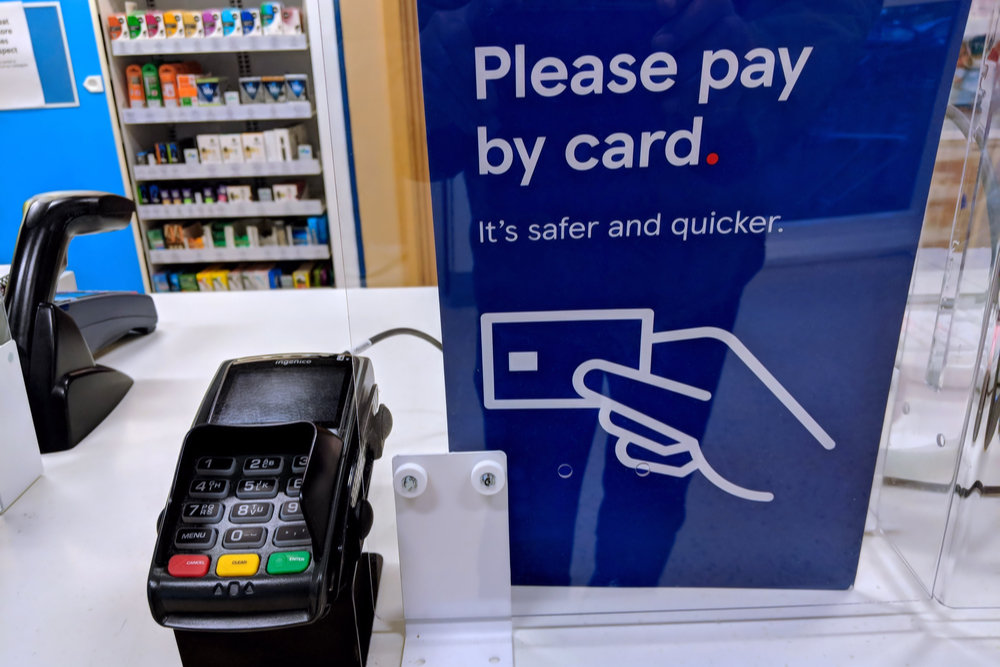

More than four in every five pounds spent are now on debit and credit cards
The latest Payments Survey from the British Retail Consortium reveals that debit and credit cards were used to pay for £326.2 billion worth of goods in 2020, accounting for 81% of all retail sales. This compares with £308.5 billion worth of sales in the previous year, or 78% of sales.
It is little surprise that 2020 saw a significant decline in cash payments. The Covid-19 pandemic and national lockdowns saw ‘non-essential retailers’ close their doors and high streets deserted as people shopped online leaving fewer opportunities for cash spending.
The ensuing social distancing measures and favouring of contactless payments has continued to negatively impact cash use with the volume of cash purchases falling by seven percentage points in 2020 to 30% of retail transactions.
Cash was used to pay for £60.9 billion worth of goods in 2020 (accounting for just over 15% of sales value), compared with £77.6 billion in 2019 (accounting for just under 20% of sales value). Given the circumstances, the decline of less than five percentage points in terms of sales value accounted for by cash suggests a high level of resilience for cash use remains.
The survey also reveals the pandemic has changed the way we shop, not just how we pay; with consumers making fewer but bigger shopping trips.
While the number of transactions fell by 13% (from 19.1 billion in 2019 to 16.7 billion in 2020), consumers spent on average 20% more per transaction. Thus, the average transaction value increased from £20.16 in 2019 to £24.15 in 2020.
The trend towards card payments in recent years has seen retailers incur costs of more than £1 billion just to accept these payments from customers in 2020. Debit cards, which accounted for over half of all transactions (54%) for the first time, have seen transaction fees rise by 22% (to 7.2 pence per transaction). Equivalent to £46 per household per year, these additional costs can translate into higher prices for consumers.
The BRC, along with other business groups, has long been calling on Parliament to intervene and tackle anti-competitive practices in card payments to protect British businesses and consumers from spiralling costs.
Andrew Cregan, payments policy advisor for British Retail Consortium said: “The pandemic has accelerated the trend towards card payments, with more than four in every five pounds spent in retail now made with credit or debit cards. Basket sizes also rose, as customers made bigger, but fewer purchases. While cash use has declined in importance, it remains vital for many people who do not have access to other payment methods.
“Despite the general movement to card payments, retailers are being punished through the soaring cost of accepting such payments. Parliament needs to urgently intervene in this anti-competitive behaviour by regulating card scheme fees and abolishing interchange fees, both of which ultimately hurt consumers. Card firms are abusing their dominant market position, and this must come to an end.”

